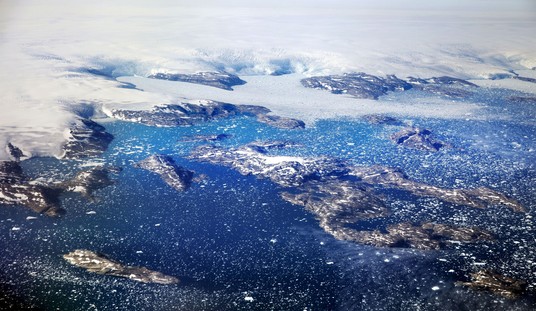My father, like most men who have farmed and maintained rural homes for much of their lives, paid close attention to the weather. While he was openly contemptuous of most television programming, he did keep a small television next to his favorite chair, tuned to a 24-7 weather channel; he would turn it on in the morning while drinking his coffee, only for long enough to get the weather for the day. Then, he would go outside, look at the sky, and render his own opinion as to what the day would bring. As I recall, he was right more often than the weather service was, informed as he was by many decades of organizing his days around the weather.
I find that now, in our rural Alaska home, I do the same thing. One of the first things I do when I wake up every morning is to check the weather on my phone; then, when I go outside to walk to the office, I look up at the sky and form my own opinion. Country folks, in my experience, pay pretty close attention to the weather.
We also know better than to mess with the atmosphere, an enormously complex, chaotic system that we can't hope to completely understand. But in a stunning display of human hubris, some think, in the name of fuzzily defined climate change, we should mess around with, of all things, the water vapor content of our air.
To call this a bad idea is a gross understatement.
In a study released Wednesday in Science Advances, researchers propose a controversial geoengineering strategy to reduce global warming, one that involves dehydrating the stratosphere by removing water vapor – the most abundant greenhouse gas.
Indeed, although greenhouse gases like carbon dioxide and methane are the most important drivers of human-caused climate change, water vapor remains the most common greenhouse gas. Removing it from the atmosphere would help mitigate climate change, study authors say.
Are these people seriously proposing we mess with the water cycle — on a global scale? Granted my education was in biology, not meteorology, but I'm pretty well-read on all of the earth sciences in a general way because I'm interested. This seems like an idea that were it to actually be implemented, could have some catastrophically bad effects: Drought, crop failures, and so on. And for what? To "correct" the planet's temperature? For this, they propose to mess with the water cycle that brings us essential rain and is the primary driver of weather?
Climate, especially on a global scale, is far beyond our capacity to completely understand. Like biology, meteorology involves the study of complex and chaotic systems with very few, if any, sharp dividing lines; the old saw about "meddling with things we can't possibly comprehend" should caution any efforts here. The simple fact is that we really have very little idea what messing with the water cycle like this could do, and the possible negatives could massively outweigh any slight positives.
See Related: Young People Don't Actually Give a Damn About Climate Change, Poll Finds
From Beef to Bugs: America's Looming Protein Shift and the Crisis in Meat Production
At least there are those in the meteorological sciences who are already calling foul on this bad idea.
"I have to be very skeptical," said Kevin Trenberth, a scientist at the National Center for Atmospheric Research. "Focusing on dehumidifying the stratosphere by itself makes no sense to me."
It makes no sense at all, especially when set against the history of the planet.
This white, blue, and green pearl of a world we're all riding on has a long, long history, and through most of that history, it's been warmer than it is now. The Paleocene/Eocene Thermal Maximum, which occurred about 55 million years ago and is thought to have been caused by vulcanism, saw tropical rainforests growing in Europe. While grape vines in Britain are known to have grown since the Hoxnian — around 400,000 years ago — first-century AD Romans are known to have cultivated wine grapes in Britain, something that can't be done today as that island isn't as warm as it was 2,000 years ago.
It is the height of human arrogance to assume we know what this ancient planet's "correct" temperature is.
Messing with the water cycle is a bad idea. These people claim to be worried about climate change, so they are proposing to mess with a climate system upon which literally our entire system of agriculture depends. Unforeseen side effects here could result in catastrophic drought and mass starvation. Fortunately, sane voices are calling this idea out for what it is — just plain bad.
And, as I’ve always said and will continue to say, I’ll believe there is a climate crisis when the people who keep telling me there’s a climate crisis start behaving like there’s a climate crisis.
This seems appropriate.















